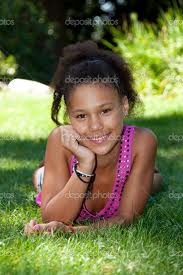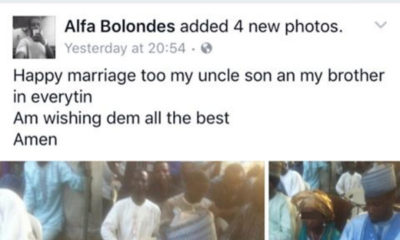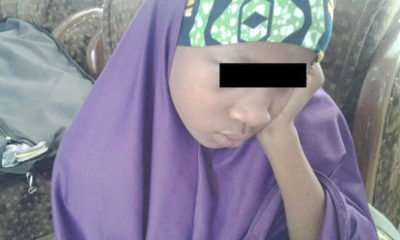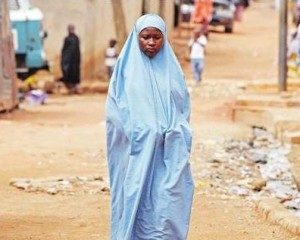News
#ChildNotBride: If the Child Bride Could Tell Her Story
 As I watched the poster boy for child marriage in Nigeria and elected pedophile, Senator Yerima, once again deliver his worn religious justification for child marriages on Al Jazeera’s The Stream, one thought weighed heavily in my mind: If we could speak to Senator Yerima’s child wife, what would she tell us?
As I watched the poster boy for child marriage in Nigeria and elected pedophile, Senator Yerima, once again deliver his worn religious justification for child marriages on Al Jazeera’s The Stream, one thought weighed heavily in my mind: If we could speak to Senator Yerima’s child wife, what would she tell us?
Amid all the controversies and attention that the child marriage issue has provoked, from the odd social media campaign instructing us to “give a child a pen, not a penis,” to the rude, divisive, and uninformed Professor who believes child marriage is “honorable and dignifying”, to the sexist panning of Stella Damasus’ evidence-based arguments against child marriage as emotional and therefore ineffective (welcome to a woman’s world, with penalties for all emotions), to Senator Yerima’s multiple local and international appearances, little attention has been given to how child marriage thrusts children’s lives into upheaval, sets their young lives on a path dictated by an abuser, and violates their fundamental human rights.
One of the best places to learn about the effects of child marriage is from the mouths of those who have not only witnessed it, but also lived it. And so as I watched Senator Yerima on my computer screen and clasped my hands together to prevent myself from punching my screen in an effort to punch the man on it, I wondered what new information I would learn if Senator Yerima’s child wife had an opportunity to tell her story.
Thus far, she has been a figure shrouded in a weird and exotic type of mystery that makes her even more mysterious. Who is this now pregnant teenage Egyptian girl? Did she swim in the Nile with her friends or herd livestock with her siblings before she was plucked from her country, her friends, her family, her language and her culture, and sold for $100,000 to an old Nigerian politician with three other wives and children who are older than her? Or did she have a more conventional Western-influenced life with many similarities to yours and mine? How did she feel on that long flight to Nigeria, a country where things barely work and where she’ll have to adapt to a new culture and role as a fourth wife?
Did she cry the way my friends and I cried when we were sent from Lagos to remote villages across Nigeria to attend Federal Government secondary schools? Did she feel threatened by the other wives and new culture, the way my friends and I felt threatened by the older senior girls and new cultures? Did she refuse to eat local foods, the way I refused to eat Amala for a few years while in boarding school, because my very Igbo mother had never cooked it at home before and I could barely stand its smell and sight? Does she look forward to visiting home or seeing her parents, the way everyone in my secondary school counted down to visiting days and vacation days?
Obviously, my secondary school experience pales in comparison to the experiences of a child bride, and I’ll never fully understand the emotional and physical trauma that accompanies such a marriage. But I can convincingly say that if marriage between consenting adults is such hard work that usually ends in hell, despite consistent dedication and effort, then child marriage must be the equivalent of trudging a rocky path in hell that only leads to more hell.
Photo Credit: depositphotos.com
__________________________________________________________________________________________________________
Beyond Better Bridges Africa works to erase workplace gender inequality across Africa by empowering African women with career, leadership, and entrepreneurial skills; by advocating for women’s issues that impact workplace gender equality; and by raising awareness of women’s issues. Follow us on Twitter at @BBBafrica or on the Facebook page.



















